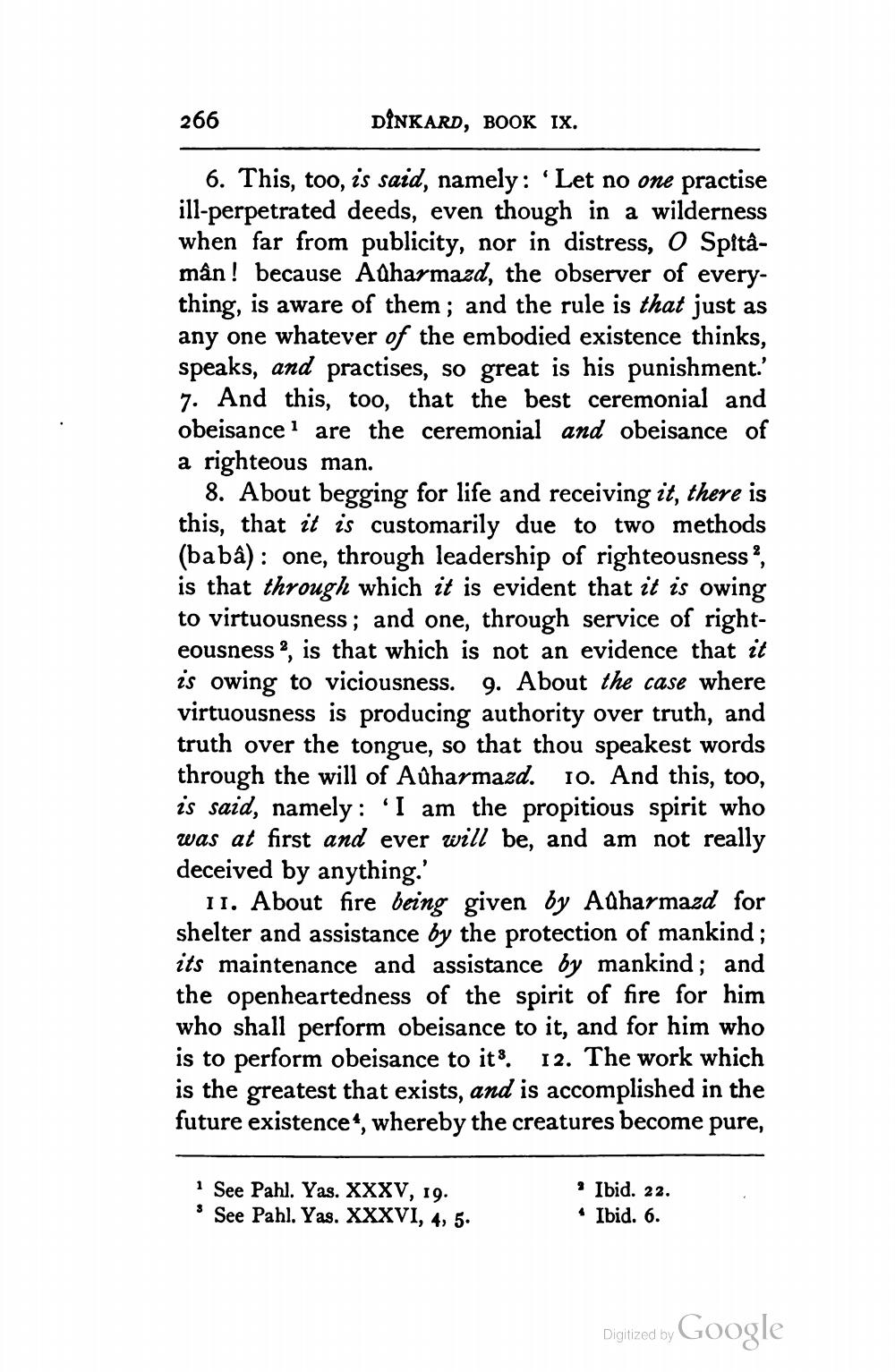________________
266
DİNKARD, BOOK IX.
6. This, too, is said, namely: 'Let no one practise ill-perpetrated deeds, even though in a wilderness when far from publicity, nor in distress, O Spitamân! because Adharmazd, the observer of everything, is aware of them; and the rule is that just as any one whatever of the embodied existence thinks, speaks, and practises, so great is his punishment.' 7. And this, too, that the best ceremonial and obeisance are the ceremonial and obeisance of a righteous man.
8. About begging for life and receiving it, there is this, that it is customarily due to two methods (babâ): one, through leadership of righteousness, is that through which it is evident that it is owing to virtuousness; and one, through service of righteousness?, is that which is not an evidence that it is owing to viciousness. 9. About the case where virtuousness is producing authority over truth, and truth over the tongue, so that thou speakest words through the will of Allharmazd. 10. And this, too, is said, namely: 'I am the propitious spirit who was at first and ever will be, and am not really deceived by anything.
11. About fire being given by Adharmazd for shelter and assistance by the protection of mankind; its maintenance and assistance by mankind; and the openheartedness of the spirit of fire for him who shall perform obeisance to it, and for him who is to perform obeisance to its 12. The work which is the greatest that exists, and is accomplished in the future existence, whereby the creatures become pure,
1 See Pahl. Yas. XXXV, 19. * See Pahl. Yas. XXXVI, 4, 5.
· Ibid. 22. * Ibid. 6.
Digitized by Google




